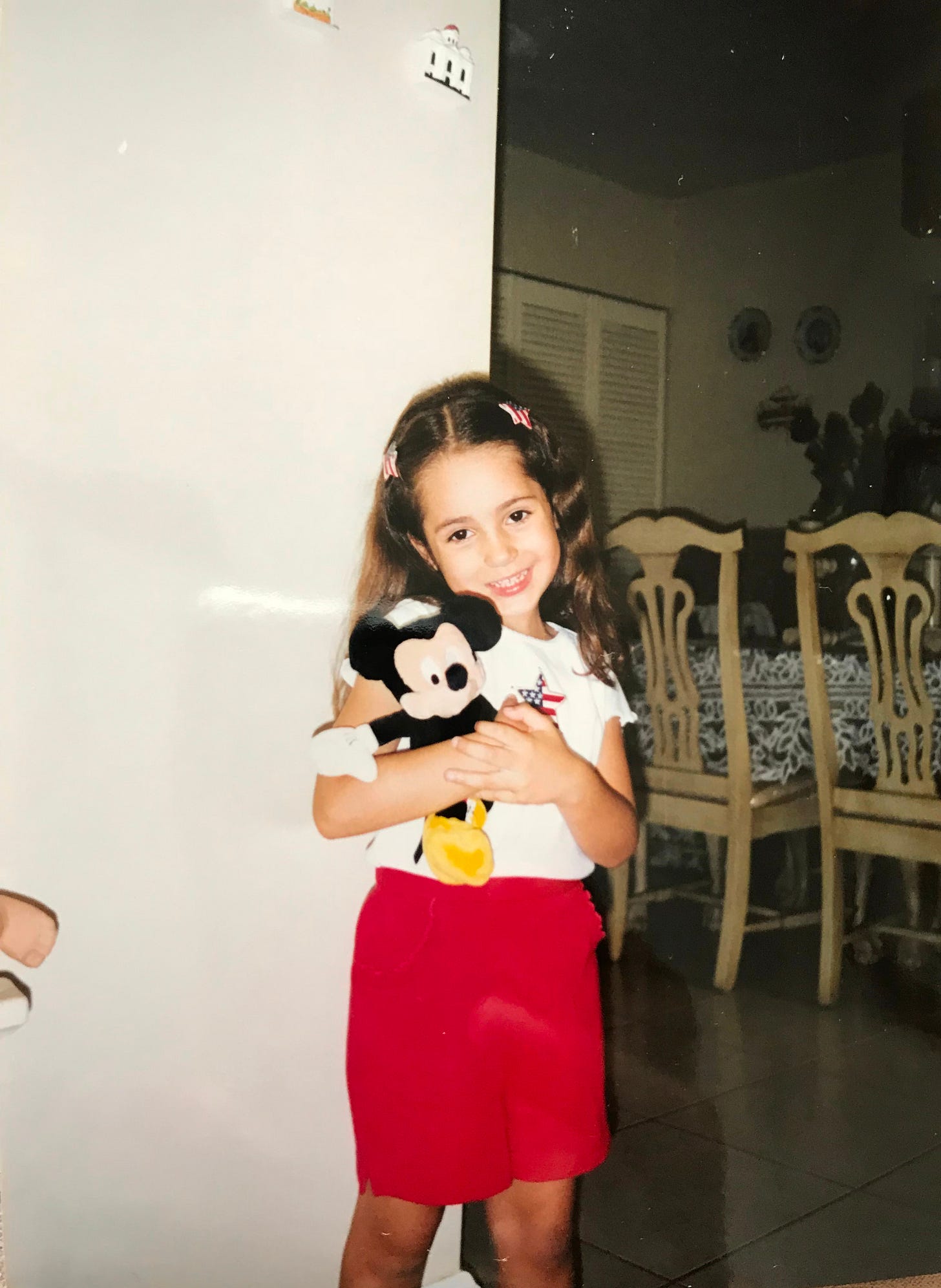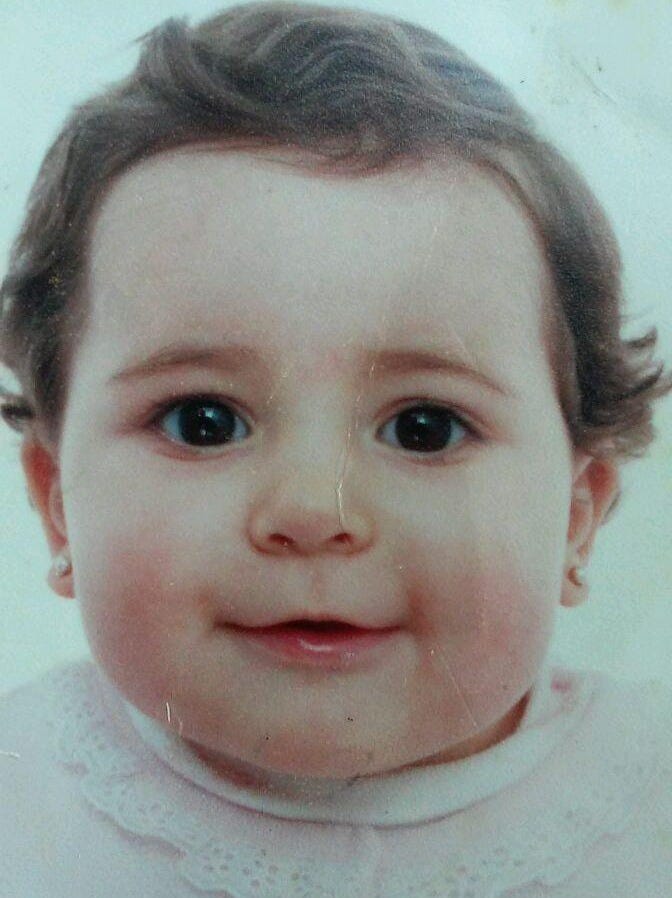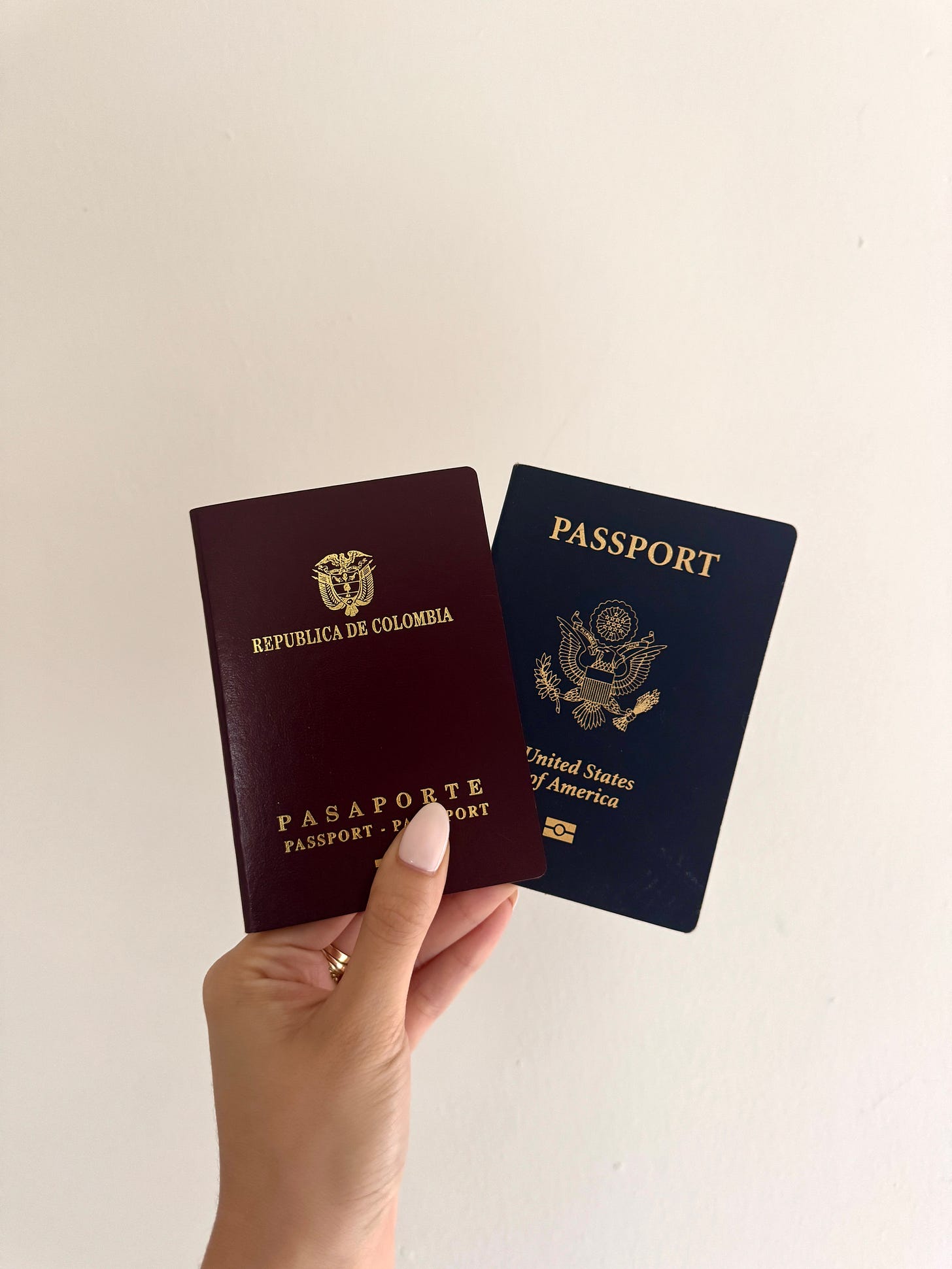We are failing an open-book exam
If you’ll indulge me, I’ll now ruffle a few feathers.
I’m taking a deep inhale. And for some of you, I suggest you do the same.
In good conscience, consider this word-soup-preamble a trigger warning: if you are a loved one (of which there are several) who tends to disagree with me on larger matters, I’d advise you to skip this one. I was raised to find the strength and will to stand up for my beliefs, particularly by some of you whom I am cautioning. So here I am, chest puffed, bracing for the inevitable impact of contradicting perspectives, throwing my two cents in the ringer nonetheless.
I, by definition, am an immigrant. I was born in Bogotá, Colombia, and immigrated very young to the United States without an ounce of English-speaking prowess. I made it the problem of every kid in play areas at shopping malls, speaking to them in gibberish with the confidence of a little girl who knew she had a whole new life ahead of her, tricolor flags tattooed on her heart. I grew up in Miami, Florida, a city colored by the vibrant mosaic of multiculturalism. A bubble in which people would speak to you in Spanish before they would in English, where cafecito pumped through the veins of the city, and where the blue skies and scorching sun reminded many people of lands they once called home.

A daughter of two immigrants, I have lived my entire life coddled by the opportunity that sacrifice and love from generations prior have afforded me. I am what is considered an American born out of the country (like John McCain, as my parents would often cite) due to my father’s naturalization after he immigrated in his youth to escape the repercussions of the Cuban Revolution. I am privileged. I am thankful. And for the most part, I grew up ignorant of what the realities were for people not all too different from myself outside of this bubble of advantage.
But for as long as I can remember, I was curious about life outside that bubble; new cities, new experiences, new places to call home. A hunger that resulted in me applying almost exclusively to universities out of state when the moment came, much to the dismay of my family.
I vividly recall a moment during my senior year of high school when a classmate asked during our lunch break, ‘Mari, what are you going to do about your name when you get to Michigan?’.
I never gave it much thought; a piece so integral to my identity being called into question. “They’ll figure it out. It’s easy”. It only took about five weeks of mispronunciations, moniker airballs, and internal contemplations of unofficial name changes or aliases in the great state of Michigan to have me saying Toto, we’re not in West Kendall anymore.
And then, almost just as quickly, I experienced my first ever line of inquiry (unsurprisingly at a frat house).
“What are you doing here?”
“This party? My sorority has a mixer with you guys.”
Drunken head-shake. “No.”
“Michigan? It’s a great school.”
Drunken head-shake. “No.”
“...The United States?”
Head-nod paired with a lazy smile, which bled into: “Yeah. Are you here on a student visa or something?”
I brushed it off, not having the right tools in my arsenal to address the quip. For a while, it felt like the only one I’d face head-on. Years later, I got referenced as “the immigrant” by a group of men who found that title comically diminutive.
In just the first half of this year, we’ve borne witness to a heightened attack on diverse identities and minority affiliations.
The University of Michigan was one of the greatest experiences and opportunities of my life to date. And just this March, one of the scholarship programs that allowed me to become a Wolverine, the LEAD Scholars program, was abruptly terminated amid the current administration’s targeting of diversity efforts in higher education.
For those unfamiliar, which I will assume is most of you, the LEAD program (Leadership, Excellence, Achievement, and Diversity) was a merit-based scholarship granted to a select cohort of underrepresented minority students. The discontinuation of this program signaled a dissolution of opportunity; one which was granted to me, and made the future I am now living in possible. Since then, I have felt equal parts guilt, frustration, and heartache.
What’s happening at present is not only an attack on underrepresented groups. It’s the permeation of an us vs. them rhetoric. And it is extremely dangerous.
History tends to repeat itself when patterns go unchecked. We’ve seen this, all of this, before, even when it has worn different masks with different groups, when the fear of the unfamiliar has metamorphosed into cruelty. Many of us are hoping for a different ending. But we know what happens when you shake a can of soda or put a sweater in the dryer.
We are failing an open-book exam. We’ve brushed through these chapters and rustled these pages before. We’re ignoring the text that’s long been printed to heed warnings of the dangers of ignorance, the destructive power of othering, and the plague of the bystander effect.
Every morning for the eight years spent in the private grade school that my parents paid for, I pledged my allegiance to the flag that stood for liberty and justice for all. Right after the pledges and prayers, our school principal would wrap up morning announcements with one simple mantra that has been a foundational value I return to, even now:
“It costs us nothing to be kind, but it means everything.”
Today, I think we need to hear this more than ever. We are hardened by the gravity and weight of the day-to-day, where the happenings and horrors of current events make ignorance feel like a sweet escape. It is a dangerous freedom to turn the other cheek and care less about the things that (seemingly) do not impact us directly. When did we lose our capacity to care? Exactly when did we trade in compassion for complacency, assuming positions as mere onlookers?
We are living in a time of complete disarray and misalignment. Do you hear it, too? The hum of a low vibrational frequency that’s feeding an insatiable disorder?
I beg us all to ask the question: Is there a reason ‘othering’ serves a purpose? In whose best interest is it to keep us divided? How much better would things be if we all banded together to build superior, more efficient systems?
We have more power than we think. We are not just drops in buckets. We are currents that can shift tides.
I am not a policymaker. I am not a lawyer. I am not a billionaire. And I certainly do not expect this here ol’ musing to do a damn thing. What I am, is expressive. What I am, is frustrated. What I am, is hopeful. I have hope that we can all answer to a calling to be a little more loving. A little less ignorant. A little more human. More practicing of ‘love thy neighbor’. We all need to give more of a damn. Or be louder about the damns we give. Chicken, egg. Let your frustrations echo, not your silence.
When we look back at history, what side do we want to be on? Where in the textbook chapter will we recognize our contribution, or lack thereof? It’s scary to speak out against injustice. But I find what’s scarier is what results from all of us staying silent, keeping our fingers crossed and clicking our heels together.
My name is Mariana. I have the privilege of being a dual citizen, and of having different places to call home. I’m proud of the varying experiences and identities that paint my larger picture, and of having a family that never allowed me to abandon those roots. I have the distinct honor of having a split identity, in which I am not considered 100% of anything to anyone. I will never be Colombian enough to those who never left. I will never be American enough to those whose family lines can be traced back generationally. I have an asterix next to my name, seemingly at all times. And that makes me the product of finding the will for a better tomorrow.
When questioning what is happening in our own backyards, in cities we do not live in and ones we do, we must ask: do we align with the way things are done? I urge us all to live with empathy, revising our blanket statements and stretching our worldviews a little more on the daily.
To my peers in Miami: the lives we lived were paved by the sacrifices of those who were brave enough to step foot on foreign soil. We are the product of that bravery. How brave, how patriotic can we be, by wanting the country we have planted roots in to be better? Kinder? More in service of the best interests of every contributing member?
To my family: I love you. Thank you for this life you have given me. I don’t take this gift lightly.
I leave you all with this: Division is a hell of a business model. We cannot continue to normalize cruelty. We cannot make compassion radical. We cannot allow national identity to get weaponized, and in turn, watch exclusion harm the communities we are a part of. We are better than this. We know better than this.
There is a better way to pave the way for balance.
We are failing an open-book exam. But there’s time left on the clock.






🫶🏽
Thank you for writing and for sharing Mari ❤️